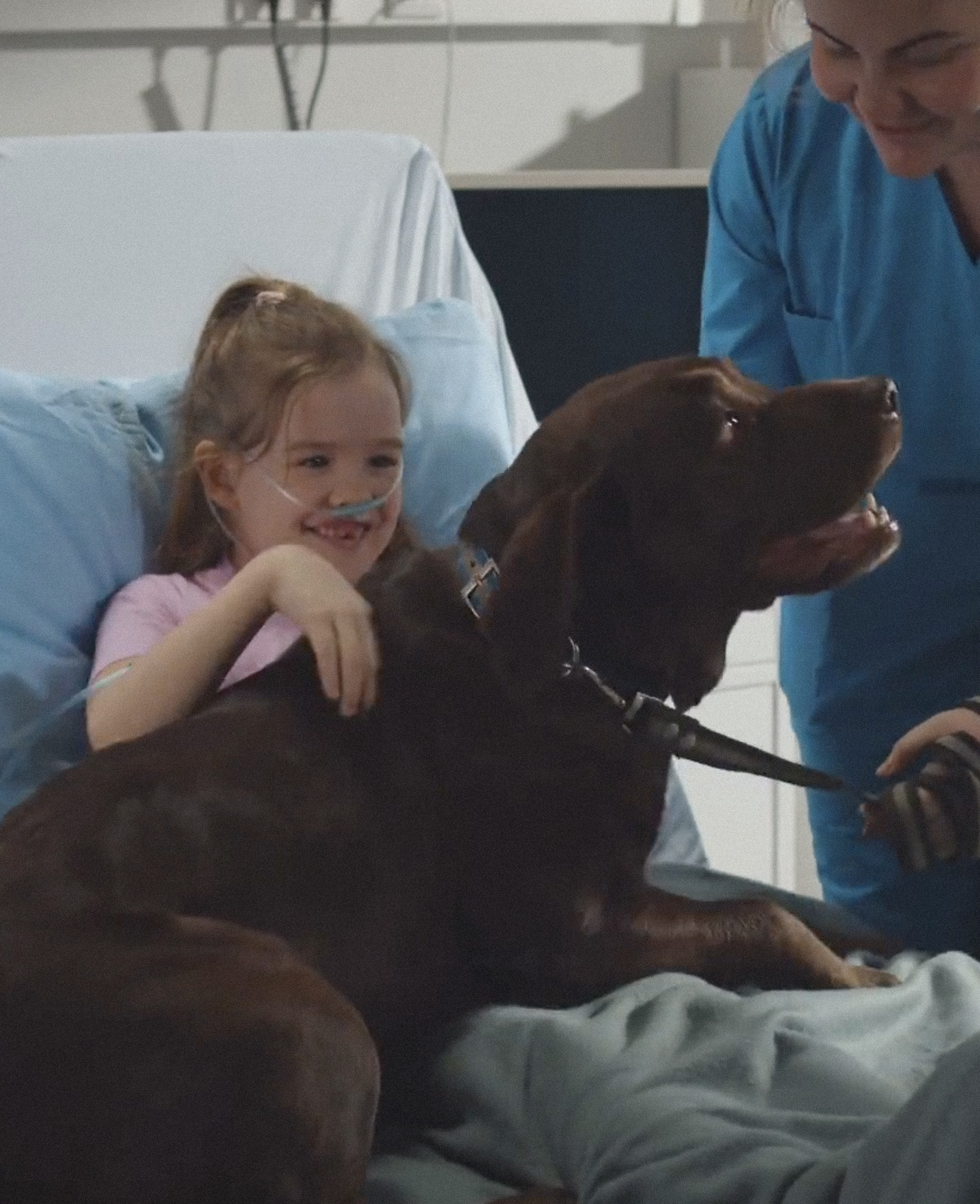Cátedra animales y sociedad
The Cátedra Animales y Sociedad at the Rey Juan Carlos University was set up in 2016 to research, train and disseminate the effects of the bond that develops between humans and animals. It developed the Animal Assisted Interventions (IAA) program as one of its main lines of action.
Animals help us develop emotional co-regulation and self-regulation mechanisms, systems that we humans need in order to regulate our emotions.
Scope of action
Spain.
Beneficiaries
Hospitals, schools, prisons, nursing homes, vulnerable groups and female victims of gender violence.
Collaboration with Fundación Dingonatura
The Fundación Dingonatura finances and actively collaborates with all of the Chair’s projects.
Causes and objectives
The Chair’s main objective is the implementation and development of any activities or research projects related to the dissemination of animal welfare principles.
Projects underway
Huellas de colores is a program that offers dog-assisted therapy to try to reduce the pain suffered by infants and adolescents in a critical condition, in intensive care at the Hospital 12 de Octubre in Madrid. It is a pioneering therapy in Spain that has proven how these therapies can significantly reduce a patient’s level of pain, anxiety and fear.
Huellas en el Corazón (Footprints on the Heart) is the Assisted Intervention with Dogs program run by the Chair of Animals and Society at the Rey Juan Carlos University that is being implemented at the Reina Sofía de Córdoba University Hospital and the Comarcal de la Axarquía Hospital in the province of Malaga. The program is being run in the pediatric oncology departments in order to positively improve the stay of the children in there and to help them manage levels of stress, anxiety, pain and self image during their period of hospitalisation ahead of their medical consultation.

389
People have improved their life thanks to the help of 46 dogs, 7 horses and 2 rabbits.
Assisted animal intervention helps elderly people with cognitive impairment and has even been shown to stabilize it.